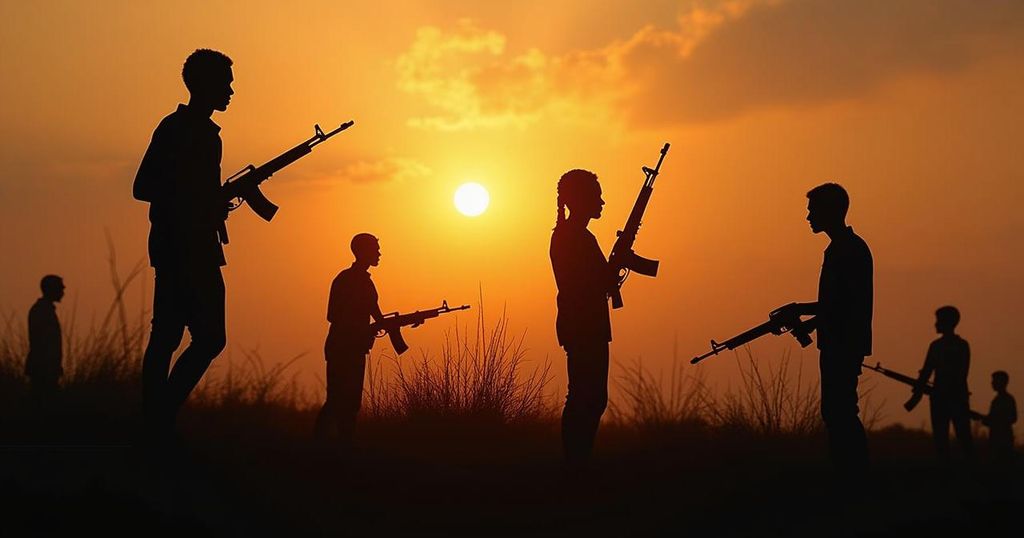Global Humanitarian Crises: The Unseen Suffering in Sudan, Haiti, and Myanmar

Despite significant media focus on the Middle East, severe humanitarian crises continue in Sudan, Haiti, and Myanmar. In Sudan, civil war has resulted in mass casualties and displacement; Haiti faces rampant gang violence and increasing hunger; while Myanmar experiences violence and human rights abuses under military rule. Each situation requires urgent attention and action from the international community.
In recent weeks, international media attention has been predominantly focused on the escalating conflict in the Middle East, particularly due to Iran’s missile response to attacks on Hezbollah; however, this has diverted attention from significant humanitarian crises occurring in Sudan, Haiti, and Myanmar. The civil conflicts and systemic issues in these nations demand urgent global awareness and intervention. In Sudan, civil war has led to a devastating humanitarian situation, as noted by Radhouane Nouicer, a Sudan expert for the U.N. High Commissioner for Human Rights. An urgent call was made for the Sudanese Armed Forces (S.A.F.) and the Rapid Support Forces (R.S.F.) to protect civilians in greater Khartoum amidst increasing hostilities. The ongoing conflict has resulted in thousands of civilian casualties along with extensive infrastructural damage. As of October 2023, the death toll from the conflict is estimated to exceed 20,000, with over 10 million people displaced. Public health crises, including a cholera outbreak, compound the suffering as more than 500 individuals have died from this disease alone. Meanwhile, Haiti grapples with rampant gang violence and a deteriorating humanitarian condition. The International Organization for Migration reports that gang factions control 80 percent of Port-au-Prince and have displaced over 700,000 people, with food insecurity affecting nearly half of the population. Nearly 6,000 individuals are at the brink of starvation as economic collapse renders basic necessities out of reach for many families. Political instability further exacerbates these issues, as deportations from neighboring countries loom. In Myanmar, the military junta continues to perpetuate violence nearly three years after the democratic government was ousted. A recent U.N. report illuminates the grim circumstances, documenting over 5,350 civilian deaths and the displacement of 3.3 million people due to military actions and governance. Torture and human rights violations in military custody remain rampant, with thousands suffering under severe detention conditions. The resistance against the junta persists, highlighting the urgent need for a political resolution to restore democracy and protect civilians. Overall, the humanitarian crises in these three nations reflect the dire need for international attention and action, which is often eclipsed by more prominent global narratives. Stakeholders must prioritize these issues to address the ongoing suffering and instability faced by millions of individuals across these regions.
The crises in Sudan, Haiti, and Myanmar illustrate the severe impact of conflict, political instability, and humanitarian disasters on civilian populations. Sudan has been embroiled in a civil war since April 2023, leading to catastrophic humanitarian conditions, with escalating violence by the S.A.F. and R.S.F. in greater Khartoum. In Haiti, escalating gang violence and economic decline have led to widespread displacement and hunger, compounded by external political actions such as deportations. Myanmar faces continued violence from a military junta post the 2021 coup, with numerous reports of human rights abuses against civilians, particularly political detainees. It is crucial to understand the complexities of these situations in the context of unaddressed global humanitarian needs.
In conclusion, the ongoing crises in Sudan, Haiti, and Myanmar underscore the need for heightened global awareness and humanitarian response. With millions suffering under dire conditions, it is vital for the international community to address these conflicts and provide assistance to vulnerable populations. Failure to do so risks further escalation of these tragedies and a continuation of human rights violations.
Original Source: www.americamagazine.org








